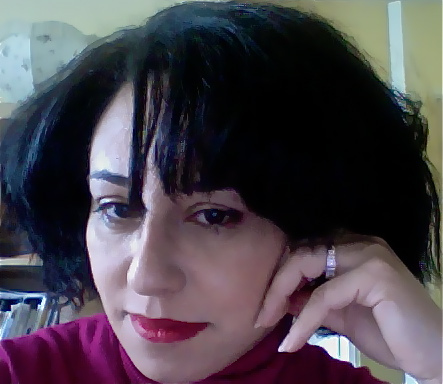By Sharon Rosen and Suheir Rasul
JERUSALEM: Even back in those tempestuous years of the 1960s and 1970s when the possibility of peace was just a dream in the minds and heart of a few, Arie “Lova” Eliav and Issam Sartawi knew what they were talking about. An Israeli and a Palestinian, both politicians and seated on opposing sides of the political divide, they recognized that a shift was needed from declaiming exclusive national narratives to acknowledging that this land is home to more than one nation.
Eliav and Sartawi’s daring vision is what inspired Search for Common Ground to name their annual Middle East common ground journalism awards after these two pioneers for peace. This year’s awards ceremony which took place on Dec. 15 in Jerusalem recognized Israeli journalist and TV personality Yaron London and Palestinian journalist, Joharah Baker, for articles they wrote in which they reveal a deep appreciation for the humanity of those that are often perceived as ‘Other’.
Those selected for the awards this year and in previous years seem to share with Eliav and Sartawi the fundamental understanding that in order to survive in the land; its inhabitants need to recognize the fundamental distinction between belonging to it and owning it. That sense of belonging, of deep attachment and identity that stems from our religions, narratives, histories and cultures must not be confused with a desire for exclusive ownership which comes at the detriment of others who also feel a belonging to the land but don’t share the same narrative.
Nowadays, in the midst of increasing hopelessness on both sides about whether we can ever achieve a peace agreement, such a stance appears almost revolutionary. Today, we see politicians who reassure and placate their supporters by voicing one exclusive national narrative to the exclusion of all other possible realities. We see politicians who liken acknowledgement of Israeli and Palestinian shared longings for the land to a betrayal of a national heritage.
In this paradigm lies the message that “if your interests are fulfilled, mine will inevitably be crushed.” Ironically, in pursuing such narrow avenues, Israeli and Palestinian figures are up against the popular opinions of both publics. Time and again, surveys on both sides have demonstrated that Israeli and Palestinian majorities see the common interests of sharing the land, so that an independent Palestine can stands next to a democratic Israel in peace.
Israelis and Palestinians have also expressed their mutual belief in the essential humanity of each other. From Israeli and Palestinian fire fighters joining forces during the recent devastating fire on the Carmel and Israeli and Palestinian bereaved families finding joint ways of coping with their losses, to religious leaders from the different faiths promoting mutual respect and artists residing on opposite sides of the separation barrier painting together — there are endless pockets of goodwill in this tumultuous region.
Building on people’s goodwill to resolve the conflict involves a two-step process: a shift in our assumptions and a shift in our rhetoric. Neither is easy. Acknowledging that the history we ingested with our mother’s milk might be one-sided is a painful process. To realize that another narrative exists alongside our national aspirations, symbols and anthems, which is as true for others as ours is for us, can be heart-wrenching. To use a different vocabulary when expressing our views on the conflict — away from “us” and “them” towards seeking commonality, and to listen rather than argue — is really hard. Yet, such steps are needed for us to move forward.
Search for Common Ground’s annual Eliav-Sartawi Awards celebrate the efforts journalists make to embrace a new vocabulary and to show that it is not “me” but instead a multifaceted mosaic of “we” that makes up this blessed and beloved region.
Sharon Rosen and Suheir Rasul are the co-directors of Search for Common Ground’s Jerusalem office. This article was written for the Common Ground News Service (CGNews) on the occasion of the annual Eliav Sartawi Common Ground Journalism Awards.



